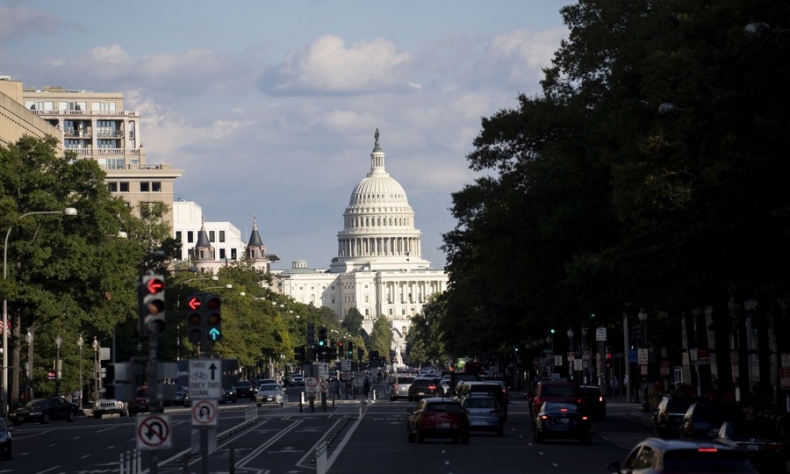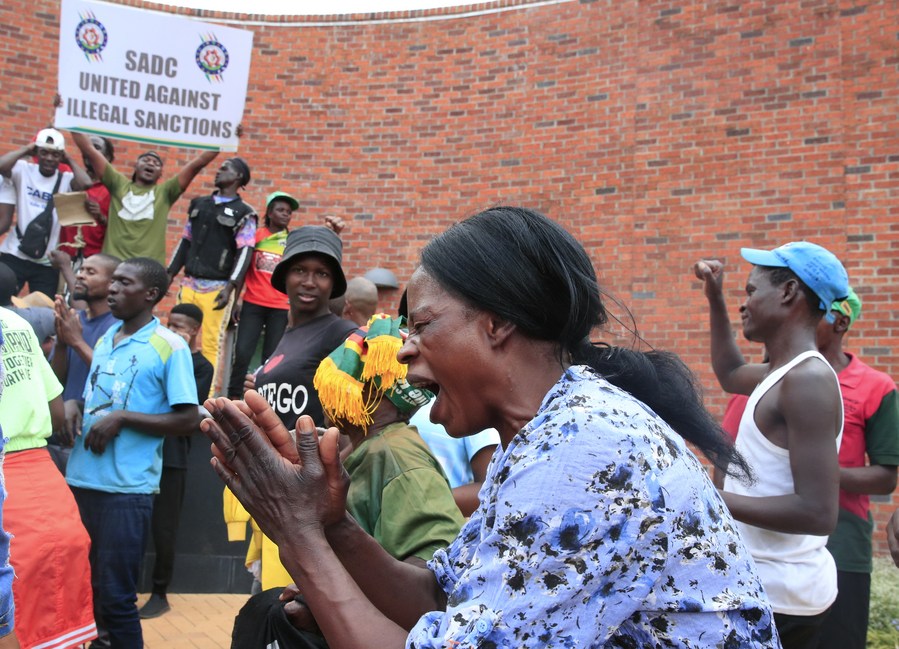U.S. Can’t Drive a Wedge Between China and Africa

Harris’ much hyped-up Africa trip was another futile exercise in anti-China hostilities. The futile efforts to sow discord between Africa and China can only expose deep-seated insecurities in America’s courtship of Africa.
Well after U.S. Vice President Kamala Harris touted her week-long Africa trip as a win for U.S. trade and security commitments, close observers and U.S. officials are now clear about the trip’s real objective: more anti-China signaling to governments in Ghana, Tanzania, and Zambia.
But Harris’ recurring focus on countries’ strictly internal affairs and her push for U.S.-influenced democratic reforms fail to reckon with underlying grievances in Africa about transactional U.S. attitudes towards the region. It took a fruitless visit from America’s top diplomat last year and unwarranted debt conspiracies from its treasury chief to confirm Washington’s neglect of the U.S.-Africa partnership under Biden. Deflecting the blame on China only highlights the real hypocrisy of American diplomacy in the region, given its desire to interfere in African countries’ independent reform trajectories and use selective investments as a political weapon.
Recall Harris’ exchanges in Tanzania and Zambia. America is unqualified to preach the value of coexistence and “democratic reforms” to Tanzania. It has employed democracy as a weapon to filter African allies based on regime type, as opposed to common interests, effectively challenging its broader support for “freedom, justice, and democracy.” Harris’ endorsement of America’s divisive Summit for Democracy ignored Washington’s own role in aggravating Africa’s food insecurity, hunger, and adaptation challenges through undemocratic means, including sanctions.
Tanzania, in stark contrast, is a principled case study, where its “efforts in building a democratic nation” are informed by choices that are internal to the country and its people. U.S. approval of what acceptable reform should look like is an unwanted obstacle to that autonomy. Calling on governments to downplay their friendship with China is nothing but a glaring representation of U.S. insecurities and can only strengthen time-tested partnerships further in the face of America’s cold war attitudes.
Any expectations that Harris’ trip genuinely reckoned with U.S. contributions to Africa’s colonial legacy were also in vain. During her stop in Ghana, Harris chose to focus more on lofty promises about U.S. support for “African innovation.” Innovation and cooperation are a tough sell given U.S. efforts to undercut Ghana’s sovereignty in support of an expanding military presence in the recent past. Also, its continuous failure to win back goodwill after brazenly castigating Africa’s innovation lifeblood: its nations.

On trade and investment, Harris’ three-nation tour also appeared tall on pledges and painfully short on actual deliverables, indicating where U.S. priorities should actually focus. From $7 billion in “new commitments” to Zambia to repackaged offerings in Ghana and Tanzania, her administration fell short of a plan to scale up these offerings in the long term. History makes clear that America’s waning trade priorities for years have confined its trade with the continent to a fraction of Africa’s total with leading partners. In effect, this challenges the credibility of new U.S. “investments” and the “significant economic benefits” that Harris allegedly saw coming.
On regional security, U.S. contributions to West Africa’s security challenges warrant serious questioning rather than scapegoating Beijing for America’s own overreach. In Ghana, Harris announced $100 million in U.S. aid to ward off militancy. And yet, it is counterproductive U.S. security assistance of the past and its domestic warfare support that left key militant groups undiminished in the region.
Similarly, the geopolitical overtones of Harris’ trip extended to America’s erroneous perceptions about Chinese influence in Africa. “We are continuing to reiterate our call for all bilateral official creditors to provide meaningful debt reduction,” said Harris in response to a press question on China’s debt restructuring. Her precise insistence that the trip was not “about China” directly contradicts senior officials from her own government who said Harris sought to bring up Chinese economic and technological engagement with Africa, billing them as a so-called concern to the U.S.
It is anyone’s guess that futile efforts to sow discord between Africa and China can only expose deep-seated insecurities in America’s courtship of Africa. In a sign that Harris walked away without an audience, hear it from Zambian President Hakainde Hichilema: “Things must not be seen that way.”
Thus, it is clear by now that Harris’ much hyped-up Africa trip was another futile exercise in anti-China hostilities. The real casualty of America’s cold war obsession is its diplomatic credibility, given alarming doublespeak on “cooperation” with Africa. There is a telling discord between calling for a progressive Africa in speech and attempting to clip that progression through unwarranted targeting of Africa’s most treasured relationships.
Hannan R. Hussain is a foreign affairs commentator, author and recipient of the Fulbright Award.
 Facebook
Facebook
 Twitter
Twitter
 Linkedin
Linkedin
 Google +
Google +










